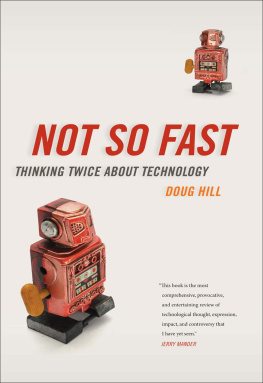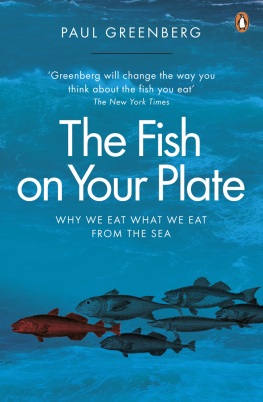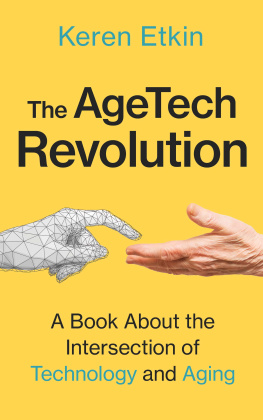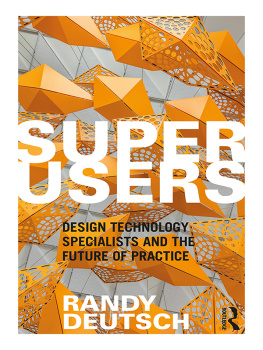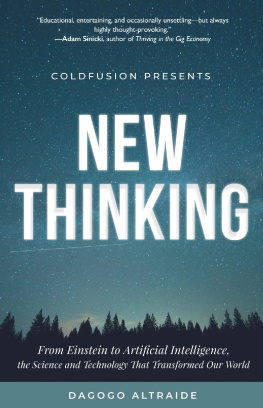NOT SO FAST
NOT SO FAST
THINKING TWICE ABOUT TECHNOLOGY
DOUG HILL

Published by the University of Georgia Press
Athens, Georgia 30602
http://www.ugapress.org
2016 by Doug Hill
All rights reserved
Set in 10/13 Kepler Std Regular by Kaelin Chappell Broaddus
Printed and bound by Sheridan Books, Inc.
The paper in this book meets the guidelines for
permanence and durability of the Committee on
Production Guidelines for Book Longevity of the
Council on Library Resources.
Printed in the United States of America
20 19 18 17 16 c 5 4 3 2 1
Library of Congress Cataloging-in-Publication Data
Names: Hill, Doug, 1950
Title: Not so fast : thinking twice about technology / Doug Hill.
Description: Athens : The University of Georgia Press, [2016] |
Includes bibliographical references and index.
Identifiers: lccn 2016020562 | isbn 9780820350295 (hard bound : alk. paper)
Subjects: lcsh: TechnologySocial aspects.
Classification: lcc t14.5 .h55 2016 | ddc 303.48/3dc23
LC record available at https://lccn.loc.gov/2016020562
CONTENTS
ACKNOWLEDGMENTS
Every page of this book demonstrates the debt I owe to the scholars whose work inspired it. They have been my guides for the intellectual adventure of a lifetime.
Im grateful to Mick Gusinde-Duffy at the University of Georgia Press for believing in the book and for his unfailing enthusiasm and generosity of spirit throughout its gestation. Thank you, Mick. Thanks, too, to Jon Davies, Barbara Wojhoski, and everyone else at UGP who contributed to the process; they have been a pleasure to work with throughout. Im also grateful to the scholars and writers who gave Not So Fast enthusiastic endorsements early on, before I found a publisher, among them Carl Mitcham, Jerry Mander, Albert Borgmann, Howard Rheingold, James Howard Kunstler, David Gill, Allen Noren, and especially Langdon Winner. Their validation was incredibly important to me personally and surely helped open the door to publication.
At an especially difficult time in my life, two friends recommended that the way out of the hole I was in was to take some time off to write the book on technology Id been writing in my head for years. Thanks to Paul Geiger and Vincent Viglione for encouraging me to make the leap. Others who have been tremendously supportive throughout the long process of getting these thoughts into print include Peter Prichard, Paul Geiger (again), Roger Cubicciotti, Jim Landis, Dewar McCloud, Arielle Eckstut, Jerry Lazar, and Scott Hill. My wife, Judy Hill, had to share her home with a cloud of intrusive ideas for far too long. Thank you, dear.
The book is dedicated, with love, to Gram, Faith, and Jasper, who for better and for worse will live with the consequences of the technological world weve given them.
NOT SO FAST
INTRODUCTION
I was introduced to what Martin Heidegger called the question concerning technology in 1992, when I moved from Manhattan to the leafy suburb of Montclair, New Jersey. The day we moved in I discovered that the house my then-wife and I had purchased was directly in the takeoff paths of two major airports, Newark and Teterboro. Wind patterns and timing had obscured that fact during our house-hunting expeditions. As a writer who works at home and who is especially sensitive to noise, I was devastated.
For a year or so I worked with the New Jersey Coalition against Aircraft Noise, a small but determined group of activists seeking to redirect planes out over the ocean instead of over densely populated communities. This was an option that would cost the airlines time and money, and they fought it. As the battle dragged on I began to understand that once technological systems are in place, theyre very difficult to budge, and not only for political reasons.
Being far more inclined to reflection than activism, I soon found myself attending fewer hearings and buying more books. I discovered that scholars in two overlapping fieldsthe history of technology and the philosophy of technologyhave spent their careers studying the influence of machines in our lives. Ive been a voracious and admiring consumer of their erudition ever since.
This book is a combination of my absorption in the work of those scholars and of my own thinking about the issues they discuss. As my title suggests, I take a self-consciously skeptical view of mechanical miracle. I think its too easy to take the promises of technology at face value and to ignore its hidden and not-so-hidden costs. Those assumptions need to be challenged.
This doesnt mean I dont appreciate the comforts technology provides. Like almost every writer these days, I spend much of my time sitting in front of a computer. Im committed to air-conditioning and indoor plumbing. I spend a lot of time listening to my iPod, and Im immensely grateful for the gift of Novo-cain.
I dont want to pass over this point facetiously. I recognize and acknowledge that technologys gifts go far beyond simple comforts, especially when linked with science. In my work as a health writer I recently interviewed an epidemiologist who is developing more-effective treatments for diseases that each year kill thousands of children who live in slums around the world. Its possible to be worried about overpopulation and still mourn the death of children. The concerns I address in this book are about the misuses of technology and about the temptations for misuse that accrue from the powers technology puts at our disposal.
When I first began studying the question concerning technology, there was almost no popular discussion on such topics as technological distraction, unexpected consequences, and the psychological effects of the Internet. That has changed, and I go out of my way here not to belabor arguments that have been made, often superbly, by others.
I try to follow the lead of one of my heroes, Lewis Mumford, who took what he called a birds-eye view of our relationships to technology. Such a view can afford some crucial perspective that our daily immersion in a world of machines tends to obscure. The philosopher Albert Borgmann put it well: the true nature of technology can be understood only by looking at the pervasiveness and consistency of its pattern. For that reason, case-by-case appraisals of individual devices or activities are necessarily incomplete. It is when we stand back to observe technological life in its normal totality (Borgmanns words) that we begin to see it for what it is.
PART I
THE CLASSIC/ROMANTIC SPLIT
Woe to that revolution which is not guided by the historic sense.
SAMUEL TAYLOR COLERIDGE
CHAPTER 1
THE PARADISE WITHIN THE REACH OF ALL MEN
These days you are to witness Examples of my pleasing arts galore. Ill give you what no man has seen before.
MEPHISTOPHELES TO FAUST
Let me begin by stating the obvious: We live in an era of technological enthusiasm.
Its not too vast a generalization to say that Americans, along with much of the world, are deeply, passionately in love with the technologies they use in their personal lives. Were also beguiled by the promises of scientists and engineers who say that, thanks to them, well soon be able to do just about anything we want to do. At our current rate of technological growth, said Elon Musk, CEO of Tesla Motors and SpaceX, humanity is on a path to be godlike in its capabilities.
Next page
